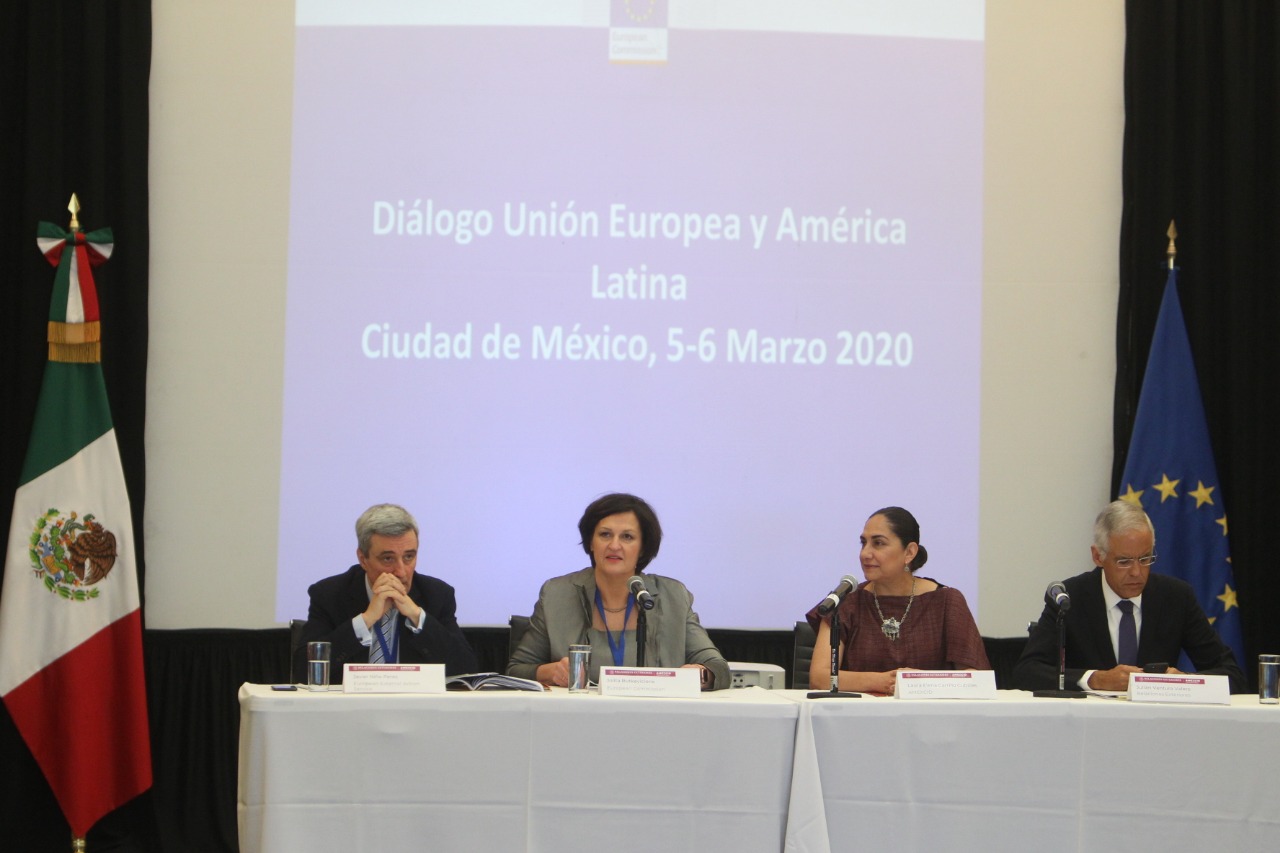Representatives of Latin American and European countries and institutions have held the "Latin America-EU Dialogue on Regional Cooperation" in Mexico City, which focused on how both regions can draw on their comparative advantages to achieve renewed bi-regional cooperation against the challenges that the world is going through today.

Image: Secretaría de Relaciones Exteriores del Gobierno de México
The fruitful and open debate focused on how the countries of Latin America and the European Union can enhance bi-regional cooperation schemes in the light of the priorities of both parties and the new paradigms in the field of cooperation, so that the joint actions might be more effective and aimed at specific, high-impact results for the benefit of the populations of both regions. The partnership between Latin America and the European Union is key and offers a unique space for common institutional dialogue on the configuration of new forms of cooperation and association.
The definition of the new programmatic frameworks incorporates the priorities expressed by the Latin American countries and those established by the new members of the European Commission, particularly the Green Alliance, to set up a bi-regional association for sustainable growth and employment.
The executive director of the Mexican Agency for International Development Cooperation (AMEXCID), Dr. Laura Elena Carrillo Cubillas, emphasised the strategic importance of the bi-regional relationship for facing common challenges in central issues such as attention to the causes of forced migration, the eradication of poverty, inequality and social exclusion; the conservation of the environment and substantive gender equality. The Under-secretary for Foreign Relations, Julián Ventura, underlined the strong convergence between the two regions, and stressed that dialogue and agreement between the two also contribute to building consensus at the global level.
For her part, the director for Latin America and the Caribbean of the General Directorate for Cooperation and Development of the European Commission (DEVCO), Jolita Butkeviciene, pointed out that “…an association means establishing innovative, flexible and adaptable cooperation structures and instruments, able to offer specific responses to the multiple realities of development and to take advantage of the enhanced capabilities of our partners.”
On the second day of this important bi-regional meeting, the debate focused on Latin America’s economic perspectives on digital transformation, governance, peace and security, and migration, followed by exchanges on innovative partnerships and triangular cooperation in specific projects carried out between three or more countries in both regions.
This bi-regional discussion takes place in the context of the definition of the future Multiannual Financial Framework of the European Union for the period 2021-2027.
The association between the European Union and Latin America dates back decades, based on a relationship that has evolved according to the priorities and development needs of both regions. A large part of the actions carried out as a result of this association is currently focused on regional projects and programmes. The current regional cooperation programme for Latin America 2014-2020 seeks to support the development efforts of each country in the region, including South-South and Triangular Cooperation projects, by contributing €803 million euros over a wide range of topics such as environmental sustainability and climate change, inclusive and sustainable growth, education and security.



